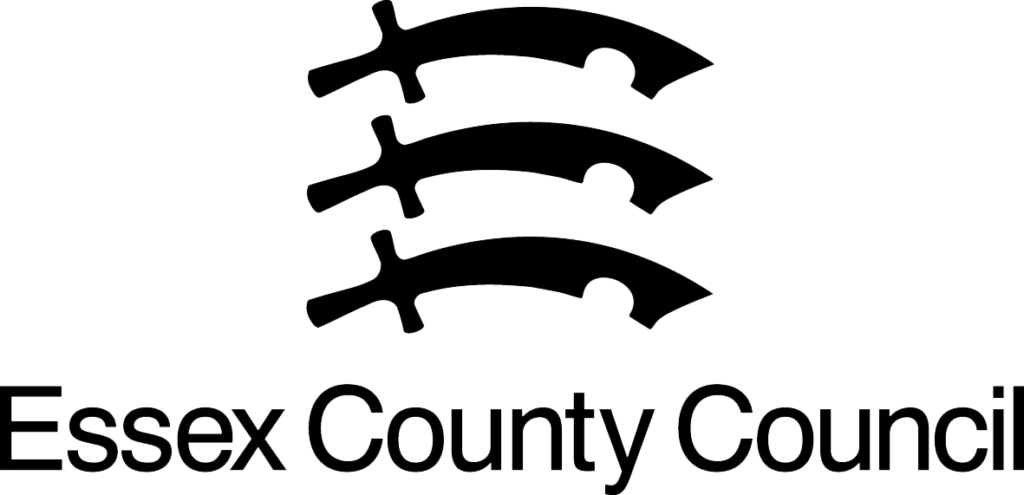An unplanned pregnancy can be a scary time, particularly if you are young, unprepared or not in a stable home or relationship.
However, there are choices and support available to help you make the right decisions for you.
So, we’ll take a look at each of them and what’s involved.
Pregnancy test
The first sign a woman is pregnant is typically missing a period. This will often prompt the use of a home pregnancy test!
A home pregnancy test simply requires you to urinate (wee) on the end of the test strip. After a short while, an indicator will appear to show if you are pregnant – or not.
Home pregnancy tests are available in most pharmacists and some supermarkets. Always read the instructions carefully. Though very reliable, many expectant mothers like to do more than one test just for their own peace-of-mind!
You can carry out most home pregnancy tests from the first day you notice you’ve missed a period. However, if you don’t know when your next period is due, you should ideally wait at least 21 days after you last had unprotected sex.
Pregnancy
If you are pregnant, your body will undergo change as the fertilised embryo begins to grow into a baby.
You will increase in weight and may suffer from morning sickness (vomiting). If you do, it typically ends after 16–20 weeks. If you are particularly affected, you should consult your doctor or midwife and make sure you drink plenty of water to stay hydrated.
You’ll be offered an ultrasound scan at around 12 weeks of pregnancy. This is called the dating scan and is used to check the baby’s development and see how far along in your pregnancy you are.
At around 20 weeks, you’ll be offered a second scan, sometimes called the mid-pregnancy or anomaly scan. Again, it checks the development of the baby and produces an image for you to keep and show others. If you wish to, you can ask the sonographer (the person conducting the scan) to tell you the sex of the baby.
Your due date, the date you will likely give birth, will be at around 40 weeks. However, many healthy babies are born both before and after their due date, so be prepared!
Abortion
If you become unexpectedly pregnant, you can decide to have an abortion or termination. This is a medical procedure which removes the fertilised embryo or foetus from your body so it cannot develop further.
Abortions in England, Wales and Scotland are carried out before 24 weeks of pregnancy. They can be carried out later but only in very limited circumstances, such as a risk to the mother’s life or the unborn child showing signs of a severe disability.
Most abortion services will use an ultrasound scan to work out how many weeks you are pregnant before choosing the right procedure.
As a pregnant woman, the decision to have an abortion is yours and yours alone. You may want to discuss it with your partner, family or friends. However, you do not have to and they do not have a say in your decision.
All women requesting an abortion can discuss their options with a trained pregnancy counsellor, if they wish.
If you’re under 16, your parents do not usually need to be told you are having an abortion. However, a doctor or nurse may encourage you to tell them for support.
Abortions are typically conducted in one of three ways:
For an early pregnancy, a medical abortion involves taking two ‘abortion pills’, typically 24 to 48 hours apart. This causes your body to reject the embryo which will come out over a few days like a heavy period.
For a more advanced pregnancy, a surgical abortion is a procedure in which a doctor inserts a tube into the womb through the vagina and cervix (the opening to the womb). The embryo is then removed using suction. This may involve local anaesthetic (numbing), sedation or a general anaesthetic (when you’re asleep).
After 14 weeks of pregnancy, a Dilatation and Evacuation (D&E) is typically performed. This involves inserting special instruments called forceps through the cervix and into the womb to remove the pregnancy. This is usually carried out under anaesthetic but you are typically able to go home the same day.
After an abortion, you’ll need to take things easy for a few days. It’s likely you’ll have some discomfort and vaginal bleeding for up to 2 weeks.
Abortion is a safe procedure and safest when carried out as early as possible in the pregnancy. Most women will not experience any problems but there is a small risk of complications such as infection or bleeding. However, having an abortion will not affect your chances of becoming pregnant again or having normal pregnancies.
It’s against the law to try to cause your own abortion. This includes buying abortion pills online.
You can find further information on termination of pregnancy from:
Marie Stopes International (MSI) on https://www.msichoices.org.uk or call 0345 300 8090
British Pregnancy Advisory Service – https://www.bpas.org/ or call them on 03457 30 40 30 from the UK or on +44 1789 508 211 from elsewhere.
National Unplanned Pregnancy Advisory Service (NUPAS) – https://www.nupas.co.uk/ or call them on 0333 004 6666
Adoption
Adoption is the act of voluntarily giving your child to another parent or family to raise as their own.
Both parents (biological mother and father) typically have to agree, unless the father cannot be identified or located.
Those who adopt children have to go through a rigorous vetting process to ensure the child will be safe and cared for.
Adoption is usually made shortly after birth. It is typically easiest when the mother has not formed a bond with their new-born child.
If you are pregnant and wish to have your child adopted, you can find out more by contacting your local authority’s children’s services or social work department. There are also voluntary adoption agencies who help manage the process.
For more information in Essex, you can visit: https://www.essexadoptionandfostering.co.uk/adoption/
Making the decision to have your child adopted can be very difficult and distressing.
Once finalised by a legal adoption order, it will be as if your child has been born into their adoptive family and they will usually take their surname. It cannot be reversed.
In most cases, you will no longer be able to see your child. However, you can ask for regular information (usually once a year), if the new parents agree.
Giving birth
If you choose to continue with your pregnancy, antenatal classes can help you to prepare for your baby’s birth and give you confidence.
They’re informative, fun and available free on the NHS!
Antenatal classes have a number of benefits, but first-time mothers in particular often pick up tips on how to look after and feed their baby, stay healthy during pregnancy and consider different arrangements for giving birth (labour). It’s also a great way to meet people in the same situation and make new friends!
Labour is a natural process and thus involves some discomfort and pain. However, there are strategies to control this and the body has a way of helping you forget this once the baby is born!
Before your baby is due, you will be able to make a birth plan in which you can specify any pain relief or other arrangement you wish to make. This can include an epidural (an injection in your back to stop you feeling pain in the lower part of your body) or a water birth (giving birth in a pool).
A caesarean section or C-section is an operation to deliver your baby through a cut made in your stomach and womb, just below your bikini line. Around 1 in 4 babies in the UK arrive via caesarean.
A caesarean may be recommended as a planned (elective) procedure or done in an emergency if a normal (vaginal) birth is too risky. It is a major operation which carries a number of risks, so it’s usually only conducted if it’s the safest option for you and your baby.
Some women choose to have a caesarean for non-medical reasons. However, this is something best discussed with your midwife or doctor. They will explain the benefits and risks compared with a vaginal birth.
Planned caesareans are usually done from the 39th week of pregnancy.
Avoiding an unwanted pregnancy
If you want to avoid having to make any of these choices, its best to take steps to avoid an unplanned pregnancy until you are ready to start a family.
Contraception empowers women and their partners to plan if and when they get pregnant.
For women, the combined contraceptive pill (the ‘pill’) is one of the most effective and widely used forms of birth control. It uses artificial hormones to stop a woman producing an egg or stop sperm from reaching it in the womb. When taken correctly, the pill is over 99% effective
Long-Acting Reversible Contraception (LARC) is the term used for birth control that helps prevent pregnancy after just one treatment. The most common forms are the contraceptive injection, contraceptive implant, IUS (coil with hormones) and IUD (coil without hormones).
Condoms are the only form of contraception which can prevent sexually transmitted infections (STIs) as well as pregnancy. They work by capturing sperm and avoiding direct contact between the penis and vagina.
Male condoms cover the penis and are 98% effective at preventing pregnancy. Female condoms fit within the vagina and are 95% effective.
There are a number of alternative methods of contraception including natural family planning (or ‘fertility awareness’), the diaphragm or cap which covers a woman’s cervix or a vaginal ring which is placed within the vagina to release hormones
If you have recently had unprotected sex and are concerned about getting pregnant, emergency contraception can help prevent pregnancy. It typically takes the form of the emergency contraceptive pill (the ‘morning after pill’). It is available at most pharmacies and effective within 3-5 days of unprotected sex but the earlier the better.
Need advice and support?
Here at Essex Sexual Health Service, we can help with contraception, pregnancy tests and termination advice. Contact us on 0300 003 1212




